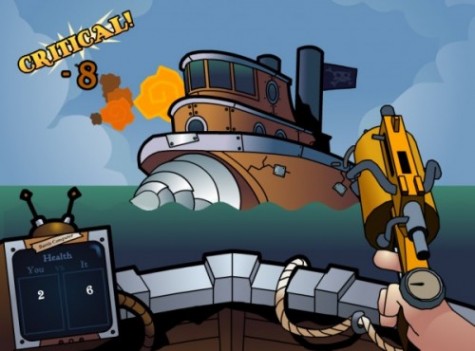Games are by definition about reward. You can’t have a game that doesn’t reward you in some way for doing something. Most games have both long-term rewards (say, winning in Monopoly), and short-term rewards (say, receiving money when someone lands on your hotel). I think it’s quite clear that these rewards are what make games so appealing to us as humans. In general, we like being rewarded for performing well.
When I find myself addicted to a digital game, I often find myself dreaming of and longing for a particular mechanic of the game. Below is a list of some game mechanics that I’ve found myself addicted to in the past:
- Sniping in Mass Effect
- Hitting players with the grenade launcher addon (“noob tube”) in Call of Duty: Modern Warfare 2
- Sneak attacking with the bow in Oblivion: The Elder Scrolls IV
- Burst damaging enemies with certain heroes in Defense of the Ancients and champions in League of Legends
- Sneak attacking with my fleet from stealth in Space Pirates and Zombies
- Headshotting in Fable
- Critical hitting in Iron Dukes
What do all of these mechanics have in common? You’ll notice that many of them are sniping or sneak attacking. I find this kind of burst mechanic, whereby you destroy an enemy in one fell swoop, extremely appealing, and I’ll bet many other gamers do too. (As an aside, if you have never experienced something like this, I suggest you play Iron Dukes, listed above, right now. It should only take you a few minutes to get into a combat minigame and experience what I am talking about.)

So why do I find this kind of mechanic so appealing that I dream about it when I’m not playing the game? I’d wager that what makes “one-shotting” things so viscerally pleasurable is because it is when we decimate an enemy in one well-timed, well-aimed blast that the gap between action and reward is the shortest. We have instant feedback and instant gratification (if we succeed). Either you miss the headshot, and you know you’ve given up your position, or you hit it, and you are immediately rewarded with the sight of your target going down.
Another thing you’ll notice about the examples above is that they’re all violent. That common element, however, is just a coincidence shaped by the content of mainstream games. Can a game implement a well-timed action/instant gratification mechanic that is not in combat? Absolutely, it just doesn’t happen as often as it should.
-Max

